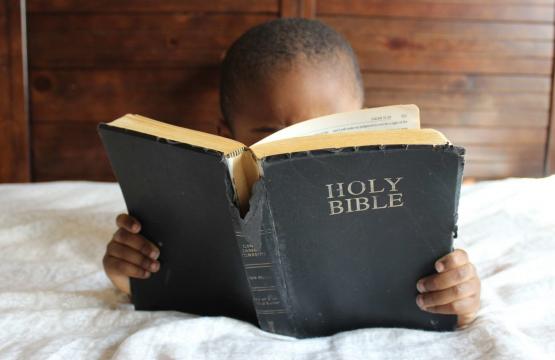The story of Jacob is really a story of God’s faithfulness.
Have you ever wondered why Jesus told the listeners to his Sermon on the Mount that they needed to be “perfect?”
He had spent the day teaching the crowds about a new way to live, where the wisdom of the world is turned upside down: in God’s kingdom, the poor in Spirit are blessed. We shouldn’t hate our enemies, but instead love and pray for them.
It’s a world-changing sermon, full of challenge and hope. But at the end of this teaching, Yeshua says, “Be perfect, therefore, as your heavenly Father is perfect” (Matthew 5:48).
“Perfect”? Really?
But take note, in the Greek, this word actually means “complete” or “mature.”
I’ve come to believe that there’s something mysterious in this verse. Yeshua knows that His followers, including me, cannot be “perfect” (or complete) on our own. He knows we will fail. I believe He is calling us here not to guilt and shame when we inevitably don’t measure up, but to a deeper faith — a stronger dependence on Him. We can only be “perfect” in God’s eyes when we are hidden in His Son, Yeshua. Still, his words here are demanding. In some of the harder moments of my life, I’ve even found them discouraging.
That’s why I love reading the Old Testament stories of biblical characters.
If anyone failed to “be perfect,” it was the fathers of our faith! The Old Testament is full of their stories – generations of Jewish men and women who received the promises of God and often saw His faithfulness up close; but who continued to make mistake after mistake. I feel so much solidarity with this ragtag group… men like Abraham and Moses and David… not just because I recognize my own failures in theirs, but because it’s through their failures that I can see the steadfast love of God even more clearly. These biblical characters were far from “perfect.” But God was perfect for them.
I particularly love the story of Jacob. We know him now as the father of 12 sons, who became the heads of the 12 Tribes of Israel. In fact, God gave Jacob the very name of Israel – He is truly the father of the Jewish people.
But we also know that Jacob was a man of many flaws (and that’s putting it lightly). He was jealous of his older brother Esau. The two were born as twins, but Esau emerged first. That earned him the blessing of the firstborn, a position full of deep cultural meaning and even economic implications. Jacob was willing to lie, cheat and deceive his own father in order to unjustly steal that blessing from Esau.
In Genesis 32, we find Jacob learning a universal lesson: that we often reap what we sow. At the opening of this chapter, Jacob’s brother Esau is coming after him with an army in tow, bent on killing him for stealing his birthright. Jacob is terrified. He pleads with God to protect him. He schemes to “appease” Esau with gifts and bribes. Nothing works, and Genesis 32:24 paints a haunting picture of a man devoid of all hope. Jacob sends his loved ones away to protect them from his impending doom, and “Jacob remained all by himself,” the Bible says (Genesis 32:25, TLV).
How many times have you felt that verse in your bones? How many times, even just in the past two years, has the isolation, fear and disruption of this terrible COVID pandemic left you feeling scared and alone? I have felt it, and I know you have, too. That’s why I’m convinced we can learn something about God’s abiding love for us even today from what happens next in Jacob’s story.
Now, Jacob knew who God was. He would have been taught since boyhood about the promise God made to his grandfather Abraham – that Abraham’s star-numbered offspring would be God’s people and that He would be their God. Jacob had even seen, in a sacred dream, a “ladder of angels ascending and descending to the earth” and had heard God audibly tell Him that He will be with Jacob wherever he goes.
But at this moment, alone in the desert, Jacob knows that his earthly life is in grave danger. And while he wrestles with that existential fear, he also wrestles with someone else: a stranger, according to the Bible. The two wrestle all night; pushing, pulling, and grasping. Jacob’s opponent even wrenches his hip out of its socket, leaving Jacob limping and in pain. Still Jacob doesn’t give up. When morning comes, the “man” tells Jacob to let Him go. Jacob persists. “I won’t let you go until you bless me” (Genesis 32:27, TLV).
This is the moment. To this brash, assertive, courageously bold request from Jacob, God says yes. “Your name will no longer be Jacob, but rather Israel, for you have struggled with God and with men, and have overcome,” God said (Genesis 32:29, TLV).
One word from God, and everything changes.
Now Jacob knew that he had been wrestling with God Himself – most likely a pre-incarnate appearance of Yeshua. I believe it’s possible that when Jacob saw his situation for what it was – when he realized that his life and future were wholly out of his own hands – then His eyes were opened. Then he could finally see and hear what God was saying to him: Stop grasping at control of your own life. Give it to Me.
My friends, this is a profound picture of what the Lord tells Paul in 2 Corinthians 12:9: “My power is made perfect in weakness.” When we are at the end of our rope, as Jacob was in the desert that day, two miraculous things happen: we finally see the reality of our situation before God, and God gets to show off. When we are forced to acknowledge that we are the Lord’s creatures, not creators, we are forced to give Him alone the glory. When Jacob finally stopped trying to control his own destiny – by stealing a birthright, lying to his father, or bribing his attacker – God said yes. The breakthrough came, and Jacob trusted God for the promises He’d made to him.
This is such a beautiful truth! I believe it has so much to offer us, including eternal hope – without making false promises.
Consider again Jacob’s predicament: he was afraid for his life. Even though God ultimately protected him from Esau, He did not protect him from all pain or pressure of the all-night wrestling match. God even pulled Jacob’s hip out of its socket, leaving him with a lifelong limp.
The faithful life is not without its scars. I’ve heard it said, “salvation is free, but the rest is a la carte: you pay as you grow.” Even Yeshua said it Himself: “If anyone wants to follow after Me, he must deny himself, take up his cross, and keep following Me” (Mark 8:34, TLV). If we’ve been under the impression that following Jesus means the end of difficulty or all blood, sweat and tears in this life, we’ve believed a lie.
Still, this doesn’t mean we seek out suffering on purpose. How much better would things have gone for Jacob if He had trusted God from the beginning; and had not lied and cheated his brother! And the fact that God can redeem our suffering doesn’t mean that God expects us to enjoy it, either. What it does mean is that we can trust that our suffering has meaning. I firmly believe that when we endure suffering, we build character that we could not find elsewhere. We can’t know what it means to call out to God in desperation if we are never desperate. Suffering reminds us that we aren’t in charge. It reminds us to rely on Him.
In the end, Jacob isn’t blessed by virtue of his own endurance. It is God who blessed Him. It was God who finally said – once Jacob had ears to hear it – “Your name will no longer be Jacob, but Israel, because you have struggled with God… and have overcome (Genesis 32:29).” With this one word from God, everything changed.
This is what I hope for you. It’s what I hope for me, as I continue to lead our team at Jewish Voice and follow God’s call to bring the Good News of Yeshua to the Jewish people and their neighbors. When we find ourselves losing hope or feeling desperate, we need to cling to God. We need to keep praying until we get the breakthrough. Stay in His Word and listen for His voice. One word from God can change everything.
Jacob’s story isn’t an outlier. Think of the blind man, Bartimaeus, who kept calling out to Yeshua until He gave him back his sight (Mark 10). Think of the woman who had been bleeding for years and spent every penny she had looking for a cure, yet was finally made well when she boldly reached out and touched Yeshua’s cloak (Mark 5). To both of these desperate people, Yeshua said the same thing: “Your faith has made you well.” He didn’t mean that they were capable of their own healing. He meant they had received healing because they had known whom to ask for it.
Let that be us! Friends, let’s be like Jacob. Let’s be like every other Believer who has looked to God alone for our help and healing. Nothing is impossible for Him. Don’t look elsewhere. Look to the Scriptures. Look to the Lord. And don’t let Him go until you see the breakthrough – because one word from God and everything changes.





